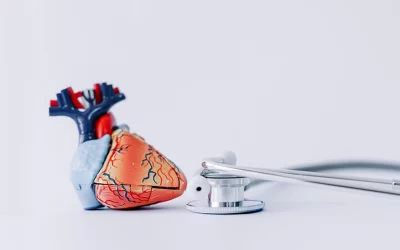Vitamin D and Autism
What is Autism?
Autism spectrum disorder (ASD) is a neurological abnormality that affects how a person perceives and interacts with others, which can lead to issues with social interaction and communication. In ASD, the word “spectrum” refers to the broad range of symptoms and severity. Typically, signs appear by the age of two.
According to estimates, one in 100 children globally suffers from autism.
The Diagnostic and Statistical Manual of Mental Disorders, Fifth Edition (DSM-5) classifies symptoms of ASD into two categories:
-
Social engagement and communication difficulties.
-
Limited repetitive behavior patterns or activities.
We need to be aware of Vitamin D and Autism connection that autism affects each child in a different manner according to their neurological and cognitive abnormalities (no two autistic individuals are alike).
Signs and symptoms
Since autism spectrum disorders range in severity from low functioning to high functioning, each autistic child is likely to exhibit a distinct behavioral pattern.
Communications and social interactions difficulties
-
Inability to understand what others say to them and language skills development limitations.
-
Unable to initiate or maintain conversations, they only initiate them to make a request.
-
Difficulty in communicating nonverbally like using their facial expressions and eye contact.
-
Uses an unusual tone or rhythm when speaking, and their voice may seem robotic or sing-song.
-
Difficulties in expressing their feelings and interests to others
Limited repetitive behavior patterns or activities
-
Performs repetitive motions like hand flapping, spinning, or rocking
-
Engages in behaviors that may lead to self-harm, such as biting or head-banging
The best course of action is early diagnosis and intervention, which can enhance a child’s behavior, abilities, and language growth.
How does vitamin D help with Autism in children?
Vitamin D and Autism relivance could affect your children’s life quality. Vitamin D has steroid-like actions that carry a cholesterol backbone. The fat-soluble hormone is responsible for playing a crucial part in maintaining brain health. In recent years, vitamin D has come to be understood as an essential neuro-steroid having a variety of functions in the brain. In a study conducted to find out the relation between Vitamin D and Autism, Autistic children had decreased 25(OH)D levels at three months of gestation, at birth and at age of 8 compared to their siblings. In two uncontrolled studies, it was discovered that large doses of vitamin D help roughly 75% of autistic children with their primary symptoms.
Vitamin D prophylactic and treatment doses
It is advised to take 1,000 to 2,000 IU per day as prophylactic or a maintenance dose, and 5,000 IU tablets up to 50,000 IU tablets in the treatment of vitamin D deficiency, depending on an individual’s blood level and age.
After reading all the above, you already knew the connection between Vitamin D and Autism. Take action to enhance your patient’s health
Read More Articles:
The Importance of Vitamin D for Dental Health
Vitamin D and dental health Vitamin D has an important role in dental health as it helps in preventing tooth decay and gum diseases, also it is attributed to teeth formation by maintaining calcium levels that are essential in building healthy teeth. How does Vitamin D...
Vitamin D & Cholesterol
To clearly understand the relationship between vitamin D and Cholesterol, we need to justify what cholesterol is and what are its types.Cholesterol is formed in our bodies from the liver and we can also get it from food resources. Your body needs a cholesterol...
Muscles Weakness in Children
Muscles Weakness in Children Muscles weakness in children is one of the most common problems in our society, causing muscle pain, fatigue and tiredness, feeling of heaviness in the legs, and difficulty in climbing stairs and it is a result of vitamin D deficiency in...




